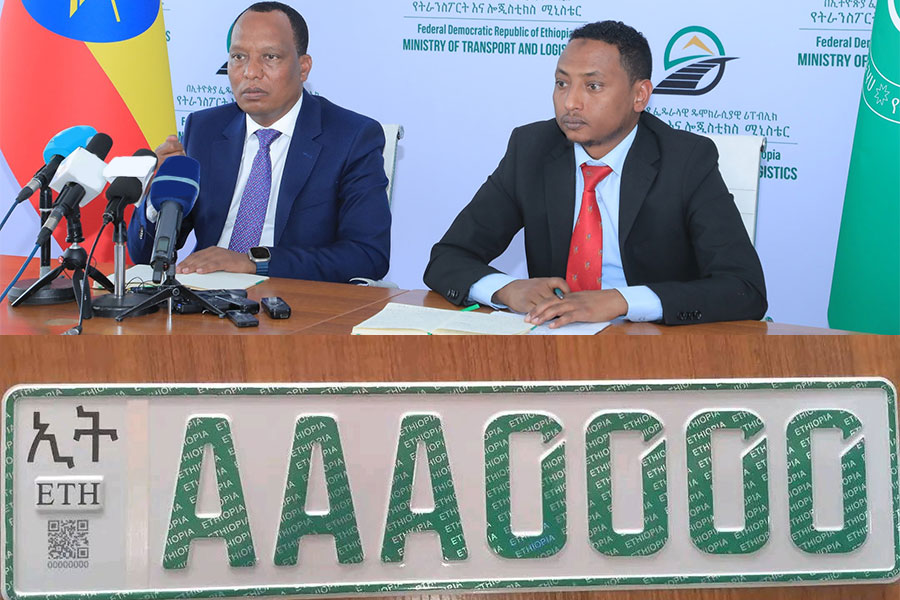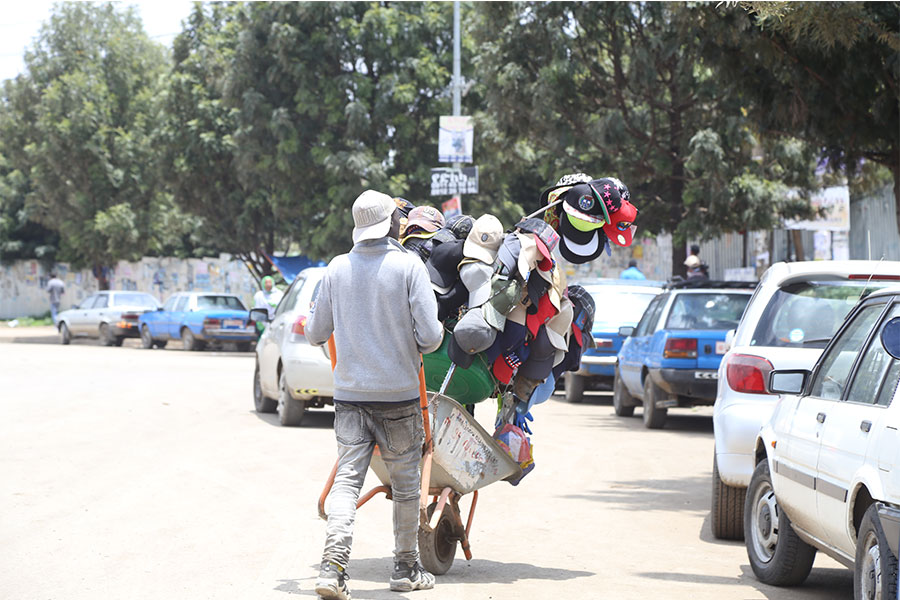
Inability to takeover the imports of spare parts and a shortage of technicians for maintenance has pushed the Ethiopian Railway Corporation`s (ERC) management to extend a contract for two Chinese consultants tasked to handle such works for the Addis Abeba light-rail service.
The decision was made after the Corporation`s senior management acknowledged that it was not ready to substitute the Chinese consultants, Shenzhen Metro Group (SMG) and China Railway Corporation (CRC), to take over the management of supplies, which involves the procurement of spare parts from abroad and installations. The need to replace Chinese nationals with local technicians to maintain the light railway has also led to the renewal of the contract.
Happneing for the second time in two years, this presents a major setback for the Corporation, which has already managed to replace foreign nationals in the operationalisation of the 34Km rail line network in the capital.
Last year, the Office of the Auditor-General slammed the management of the light railway company for its failure to properly follow whether the consultants are delivering on their tasks on time, alleging that contracts had been extended without a logical justification. Citing a lack of pre-planning on the spare parts issue ahead of the construction has affected the performance of the light-rail services, it has also accused the management of failing to sign a contract that clearly states the deliverables of the consultants.
The light rail has generated 115.9 million Br in revenues last year, although it had incurred 4.6 billion Br in losses in its first four years of operations.
The latest extension has been made despite the consultants having failed to establish a training centre to coach local technicians on maintaining railway lines, a misfiring which the Auditor General already blasted in its performance report.
"An extension of a contract agreement between the parties was signed for an additional year - free of charge - for the second time because some tasks that were slated to be completed now remain outstanding," said Muluken Assefa, general manager of Addis Abeba Light Railway.
The Addis Abeba Light Railway was initially under the auspices of the Ethiopian Railways Corporation (ERC) when it was completed in 2015. Built at the cost of 475 million dollars, with 85pc of the funding sourced from the Export-Import Bank of China, it became autonomous three years later even though its mandates are limited to operational works. The consultants are expected to set up a reliable procurement system for spare parts, conduct remaining training, and finalise signage and communications work, adding to establishing the training centre.
"We`ve reached an understanding with the consultants but the formal signing is yet to take place as the two parties gear up to take on their individual tasks," Muluken told Fortune.
The light-rail service, which is designed to serve 80,000 commuters a day, plans to lead an initiative to build a comprehensive maintenance shop where railway equipment can be maintained and repaired domestically. There is a growing demand for local repair as the country's railway infrastructure expands. Repair of some equipment requires huge investments, forcing the enterprise to spend up to 30 million Br. Yet, 30 of its 41 trains are operational at a time, while the remaining undergo scheduled maintenance.
The shortage of foreign currency coupled with the absence of subsidies from the government has been a challenge to set up a dedicated shop, according to Muluken.
The Corporation is in talks with contractors and its management consultants to assess cost-efficient methods for the establishment of the repair shop.
"We're looking into how to build it [the shop]," said Muluken.
The project will be kicked off once it gets the green light from the government.
For Abebe Dinku (PhD), a civil engineer and lecturer at Addis Abeba University, the establishment of a railway facility unit is a necessity, citing other countries do the same, setting up maintenance shops for their railway projects.
"Ethiopia has to follow suit," Abebe said. "It has to be built whatever the cost will be."
A centre for railway training currently provides postgraduate studies. According to Abebe, if what the centre's students have learned is insufficient, short-term training can be provided.
The railway line has been incurring frequent service interruptions over the past few months; frequent power outages and a growing theft of cables take the blame, says Muluken.
There has been increasing theft in the past two or three months on the Stadium-to-Abinet and Stadium-to-Torhailoch routes, said the General Manager, who hopes that the replacement of a 15Km power line stretching from Torhailoch to Meri will be completed in about three months to address the power issue.
Regardless, the light railway network is currently working at 75pc of its capacity to mitigate the spread of the COVID-19 pandemic.
PUBLISHED ON
May 15,2021 [ VOL
22 , NO
1098]

Commentaries | Jun 19,2021

View From Arada | Dec 25,2018

Radar | Sep 11,2020

Commentaries | Sep 23,2023

Commentaries | Oct 22,2022

Dec 22 , 2024 . By TIZITA SHEWAFERAW
Charged with transforming colossal state-owned enterprises into modern and competitiv...

Aug 18 , 2024 . By AKSAH ITALO
Although predictable Yonas Zerihun's job in the ride-hailing service is not immune to...

Jul 28 , 2024 . By TIZITA SHEWAFERAW
Unhabitual, perhaps too many, Samuel Gebreyohannes, 38, used to occasionally enjoy a couple of beers at breakfast. However, he recently swit...

Jul 13 , 2024 . By AKSAH ITALO
Investors who rely on tractors, trucks, and field vehicles for commuting, transporting commodities, and f...

Oct 4 , 2025
Eyob Tekalegn (PhD) had been in the Governor's chair for only weeks when, on Septembe...

Sep 27 , 2025
Four years into an experiment with “shock therapy” in education, the national moo...

Sep 20 , 2025
Getachew Reda's return to the national stage was always going to stir attention. Once...

Sep 13 , 2025
At its launch in Nairobi two years ago, the Africa Climate Summit was billed as the f...